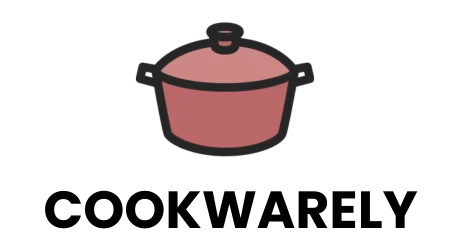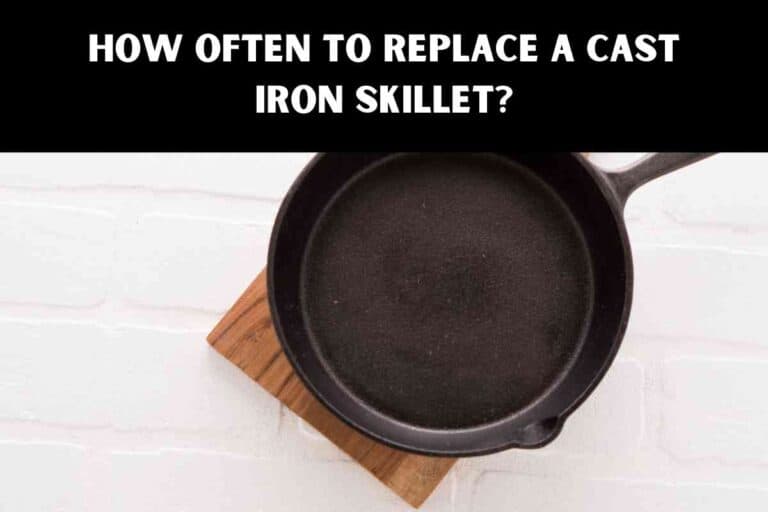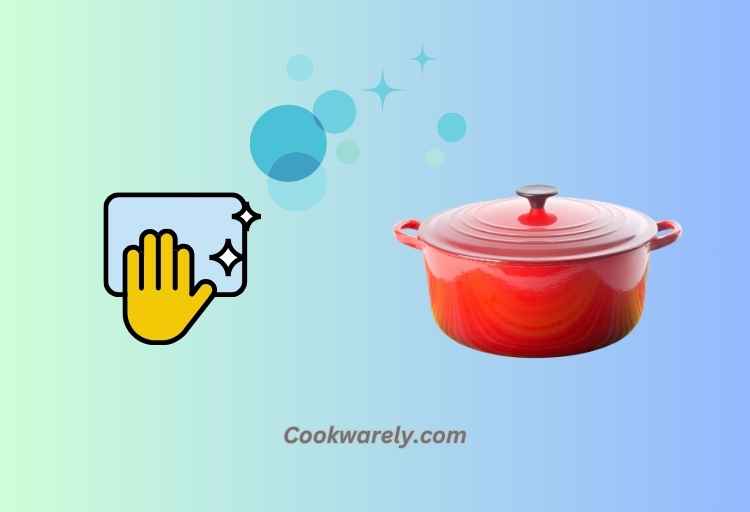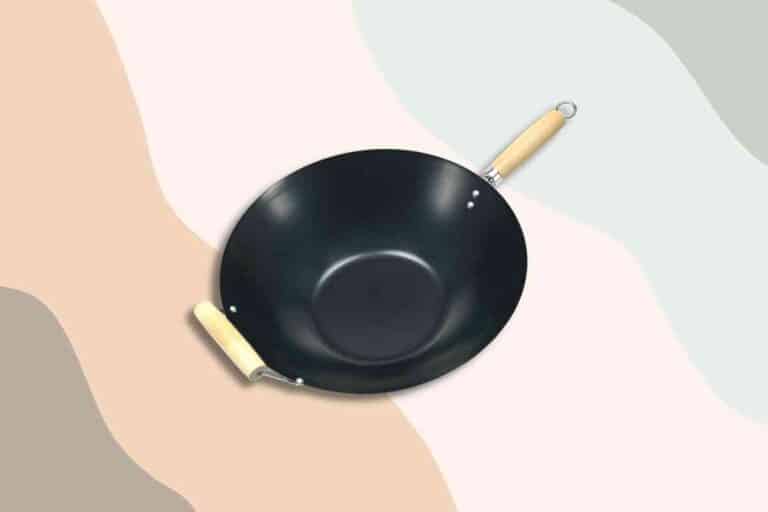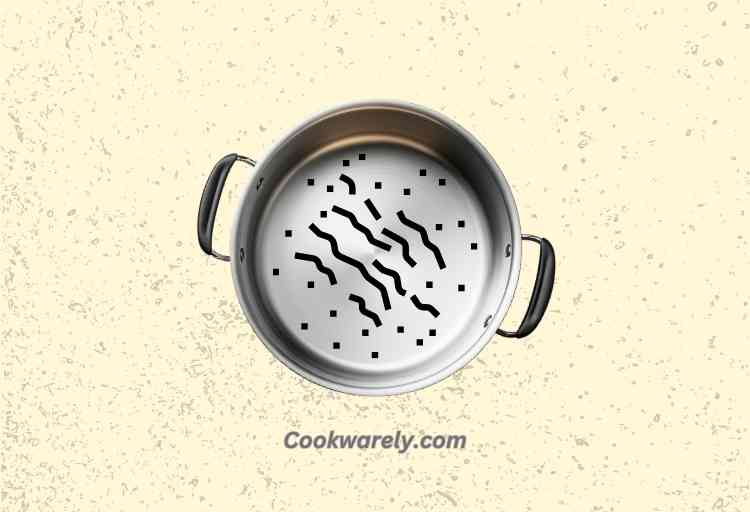Can You Store Food In Stainless Steel Pots And Pans In A Refrigerator?
When it comes to food storage, we often think of plastic containers or glass jars as the go-to options. However, stainless steel pots and pans have gained popularity as an alternative for keeping food fresh in the refrigerator.
Storing food in stainless steel pots and pans in a refrigerator is generally safe, but caution is advised. Stainless steel itself is safe, but if the cookware is mixed with other metals or has scratches, leaching can occur.
It’s recommended to use alternative airtight containers for long-term storage to minimize potential risks.
- Food Temperature: Let hot food cool to room temperature before refrigerating it in stainless steel. Avoid placing hot food directly in the container to prevent potential stainless steel issues.
- Container Size: Choose the right-sized stainless steel container. Too large leaves excess air, affecting food quality, while too small won’t accommodate your food adequately.
- Cleaning and Maintenance: Regularly check and clean your stainless steel containers, watching for wear like scratches or discoloration. Proper upkeep ensures both your cookware and stored food stay in good condition.
7 Considerations When Storing Food in Stainless Steel In Fridge
| Consideration | Description |
|---|---|
| Stainless Steel Quality | Check if the cookware is pure stainless steel or a mix of metals, as additional metals can leach into food. |
| Scratches and Pitting | Avoid using scratched or pitted stainless steel, as these imperfections can facilitate metal leaching and food sticking. |
| Food Acidity | Be cautious with acidic foods like tomato sauce and citrus, which can react with stainless steel, causing damage. |
| Food Sensitivities | If sensitive to metals like chromium or nickel, consider alternative storage containers to prevent potential reactions. |
| Short-Term vs. Long-Term | Use stainless steel for short-term storage, but opt for airtight glass or plastic containers for longer storage periods. |
| Seal Properly | Always seal the stainless steel container tightly with plastic wrap or foil to minimize air exposure and food absorption. |
| Position in Fridge | Place larger pots towards the back of the fridge to prevent smaller containers from getting lost and forgotten. |
Key Takeaways
- Stainless steel pots and pans are safe and efficient for fridge storage, preserving food freshness and taste.
- Maintain a fridge temperature below 40°F (4°C), use airtight seals, and adhere to food safety practices for optimal results.
- Utilize tight-fitting lids, label and date containers, avoid overfilling, and practice the “first in, first out” method.
- Stainless steel is great for soups, sauces, and leftovers but avoid highly acidic items for prolonged storage to prevent surface interactions.
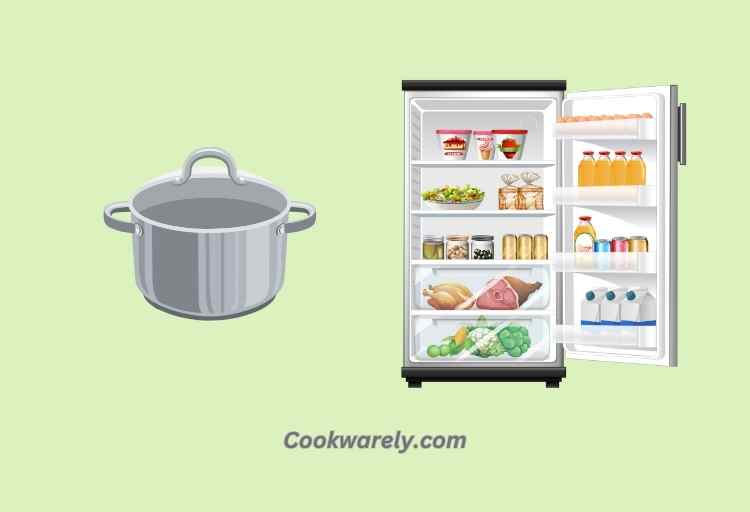
Five Facts About Storing Food in Stainless Steel
- Stainless steel itself is considered safe for food storage. It doesn’t typically leach harmful substances into your food.
- Some stainless steel cookware may contain additional metals like aluminum or copper. These can potentially leach into food, especially if the container is scratched or damaged.
- Be careful when storing acidic foods, such as tomato-based dishes or citrus fruits, in stainless steel. The acid can react with the metal, potentially affecting both the food and the container.
- Stainless steel containers are better suited for short-term food storage, like leftovers you plan to consume within a few days.
- Regularly inspect and clean your stainless steel containers to ensure they remain in good condition. Scratches or pitting can increase the risk of metal leaching.
Can You Store Food in Stainless Steel Pots and Pans in a Refrigerator?
After a tasty meal, dealing with leftovers can be a chore. One easy solution is to toss your food into a stainless steel pot, cover it, and refrigerate. But is this practice safe? Let’s dive into the details.
The Safety of Stainless Steel
Stainless steel itself is generally safe for food storage. It won’t release harmful substances into your food or cause health issues, according to experts at Clemson University. However, here’s where it gets a bit complicated.
The Composition of Stainless Steel Cookware
Stainless steel pots and pans are known for their durability, scratch resistance, and corrosion resistance.
However, they aren’t great at conducting heat. To overcome this, manufacturers often mix in other metals like aluminum or copper.
The catch is that these additional metals can potentially leach into your food, especially if your pot has scratches or pits.
The Hidden Dangers
Continual exposure to these leached metals can lead to heavy metal poisoning over time. So, while the occasional use of stainless steel pots for food storage might be okay, it’s not something you should do regularly.
Additionally, some stainless steel contains chromium and nickel. Most people aren’t affected by these metals, but some individuals are more sensitive to them.
If you fall into the sensitive group, it’s wise to avoid both cooking and storing food in stainless steel containers.
Protecting Your Cookware
The risks aren’t just limited to your health; your cookware can suffer too. Foods with high acidity, like tomato sauce, vinegar, or citrus juice, can damage the stainless steel surface. Even undissolved salt crystals can cause harm.
It’s generally safe to cook these foods in stainless steel, but storing them in such containers is not advisable.
Storing acidic foods in stainless steel can lead to small pits forming on the cookware’s surface.
These pits can make food stick to the pot and become hard to clean. Plus, they can expose you to the additional metals added to the pan for better heat distribution.
Best Practices for Storing Food in Stainless Steel Pots:
In a nutshell, it’s safer to choose glass or plastic containers for food storage. However, if you find yourself using a stainless steel pot, here are some tips:
- Seal the top of your pot tightly with plastic wrap or aluminum foil before putting on the lid.
- Position larger pots towards the back of your fridge to avoid losing smaller containers.
- Consume leftovers stored in stainless steel as soon as possible to minimize any potential metal absorption.
Benefits of Stainless Steel for Food Storage
Before diving into refrigerator storage, let’s quickly recap why stainless steel is an excellent choice for food storage:
1. Durability and Longevity
Stainless steel containers are known for their durability. They can withstand the test of time, making them a reliable option for preserving your favorite dishes.
2. Non-porous and Non-Staining
Stainless steel is non-porous and non-staining, which means it won’t absorb odors or flavors from the food you store in it. Say goodbye to lingering garlic smells in your containers!
3. Easy to Clean
Cleaning stainless steel is a breeze. It’s dishwasher-safe, and even stubborn stains can often be removed with a simple baking soda and water mixture.
Now, let’s delve into the specifics of refrigerator storage using stainless steel pots and pans.
Refrigerator Storage Basics
Before we explore whether it’s safe and effective to store food in stainless steel cookware in the fridge, let’s go over some refrigerator storage basics:
1. Temperature Matters
Your refrigerator should maintain a temperature of 40°F (4°C) or lower to ensure food safety. It’s crucial to store perishable items at this temperature to prevent the growth of harmful bacteria.
2. Airtight Sealing
For optimal food preservation, containers must provide an airtight seal. This prevents moisture loss and helps keep your food fresh.
3. Food Safety Guidelines
Follow food safety guidelines by storing cooked food within two hours of preparation. Additionally, leftovers should be consumed within a reasonable time frame, typically within three to four days.
Tips for Refrigerator Storage with Stainless Steel Pots and Pans
To make the most of using stainless steel pots and pans for fridge storage, consider the following tips:
1. Use Airtight Lids
Ensure your stainless steel cookware comes with tight-fitting lids or invest in airtight lids separately. This will help maintain the freshness of your stored food and prevent odors from escaping.
2. Seal Food Properly
When storing food, make sure it’s well-sealed to prevent moisture loss and maintain optimal taste and texture.
3. Label and Date
To avoid confusion, label your stainless steel containers with the contents and the date you stored them. This helps you keep track of freshness.
4. Avoid Overfilling
Don’t overfill your stainless steel pots and pans. Leave some space to accommodate any potential expansion as food freezes or chills.
5. Rotate Your Food
To minimize food waste, practice the “first in, first out” method. Use older food items before newer ones to ensure nothing goes to waste.
Foods That Are Ideal for Stainless Steel Refrigerator Storage
Stainless steel pots and pans are versatile and suitable for storing various types of food. Some ideal candidates for stainless steel refrigerator storage include:
- Soups and stews
- Cooked grains like rice and quinoa
- Sauces and gravies
- Leftover casseroles
Foods to Avoid Refrigerating in Stainless Steel Cookware
While stainless steel is generally safe for refrigerator storage, some foods may not be the best fit due to potential interactions. Avoid storing the following in stainless steel pots and pans for extended periods:
Highly acidic foods like citrus juice, vinegar, and tomato sauce. Prolonged contact with these can lead to surface damage on the stainless steel.
Maintaining Stainless Steel Cookware for Food Storage
To ensure the longevity of your stainless steel cookware for food storage, follow these care guidelines:
- Wash with hot, soapy water before first use to remove any residue.
- Avoid using harsh chemicals or abrasive cleaners, which can damage the stainless steel surface.
- For stubborn stains, create a paste using baking soda and water, apply it to the stain, and scrub gently.
- When not in use, store your stainless steel pots and pans in a cool, dry place with the lids off to prevent any potential moisture buildup.
Conclusion
Stainless steel pots and pans are a safe and practical option for storing food in your refrigerator. Their durability, non-porous nature, and ease of cleaning make them a versatile choice for preserving the flavors and freshness of your favorite dishes.
Just remember to follow proper food safety guidelines, use airtight sealing, and avoid storing highly acidic foods for extended periods. With these tips in mind, you can make the most of your stainless steel cookware in your food storage routine.
